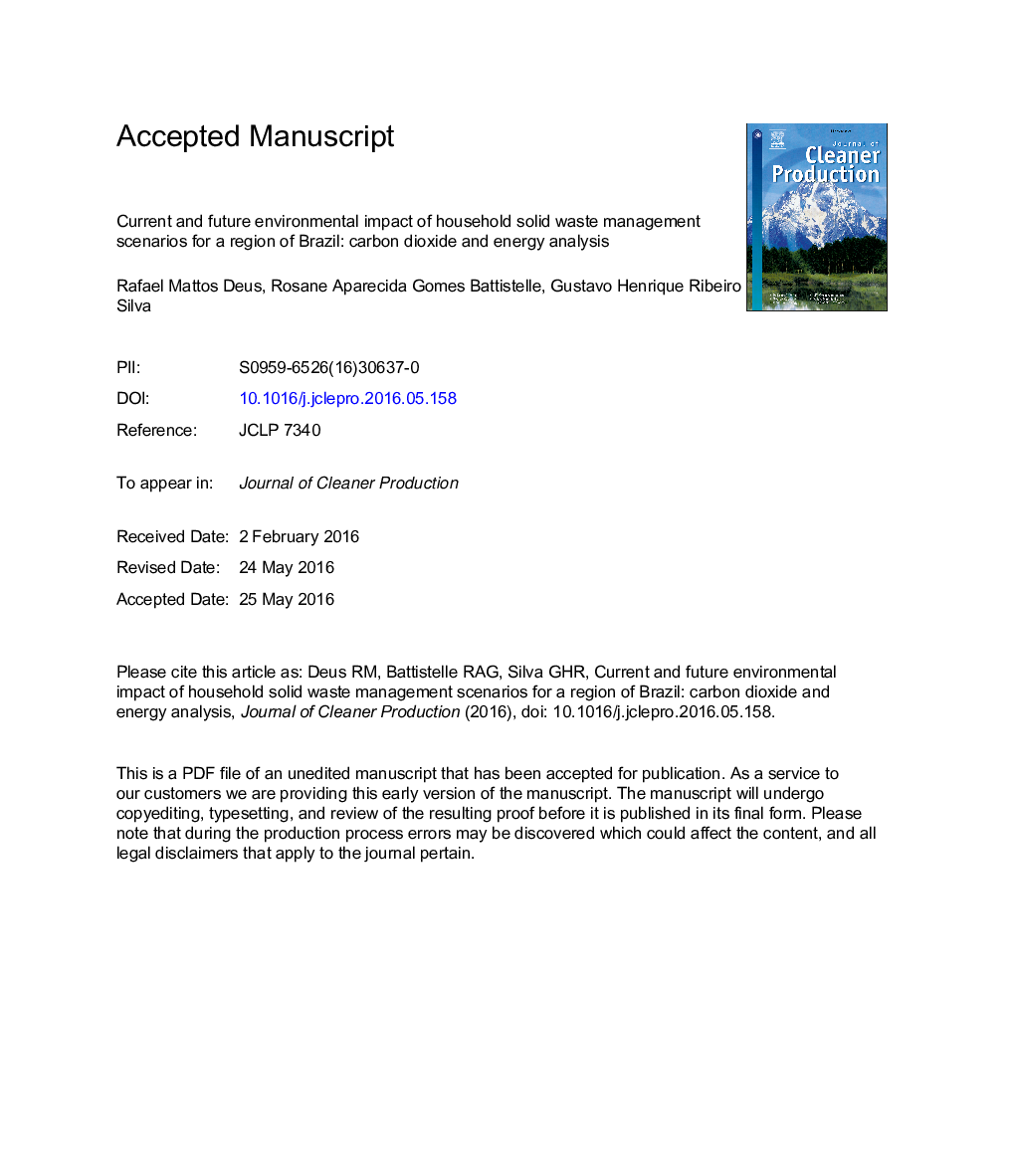| Article ID | Journal | Published Year | Pages | File Type |
|---|---|---|---|---|
| 5479709 | Journal of Cleaner Production | 2017 | 37 Pages |
Abstract
In Brazil, the largest share (51.4%) of municipal solid waste is composed of organic matter; however, composting is rarely used as a treatment technology. In 2008, only 3.8% of Brazilian municipalities had access to composting plants and about 11.6% of municipalities destined the municipal solid waste to recycling plants. This is only 1.4% of waste generated. Recycling and composting are key programs for municipalities to reduce environmental impact. Therefore, this study aims to evaluate the environmental impact of inserting a recycling, composting and integrated program in a region of Sao Paulo State, Brazil through the Waste Reduction Model method simulation of greenhouse gases emission (carbon dioxide equivalent and carbon equivalent) and energy use. The results show that recycling and composting can minimize the emission of greenhouse gases, reducing carbon dioxide and carbon equivalents, and promote energy savings. The best result is the integration of these techniques, which can reduce 78.8% of carbon dioxide and carbon equivalents and save 490.9% in energy versus baseline scenario. This study supports municipalities creating scenarios as a tool for planning and decision making to reach targets proposed by solid waste policies.
Related Topics
Physical Sciences and Engineering
Energy
Renewable Energy, Sustainability and the Environment
Authors
Rafael Mattos Deus, Rosane Aparecida Gomes Battistelle, Gustavo Henrique Ribeiro Silva,
